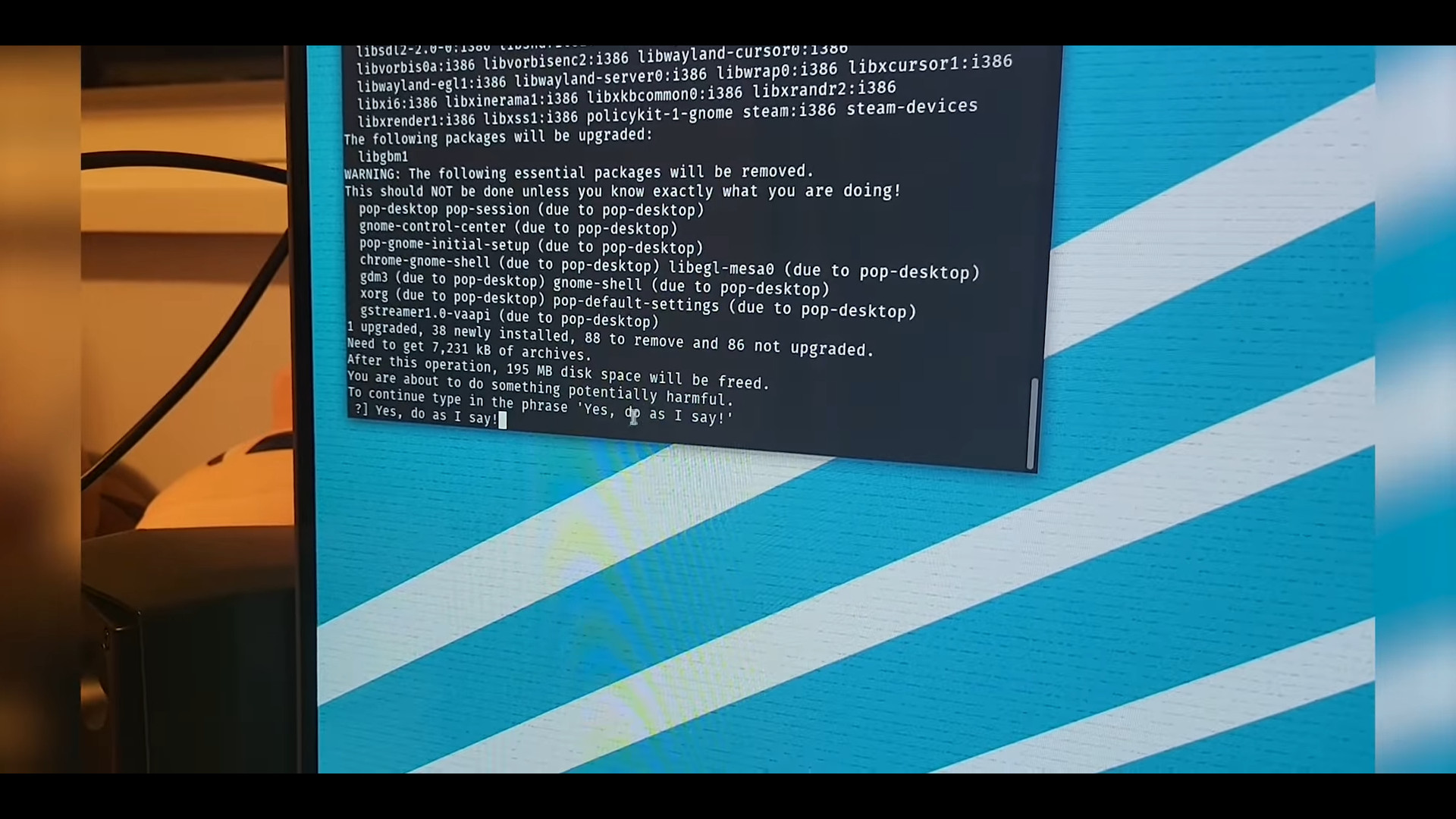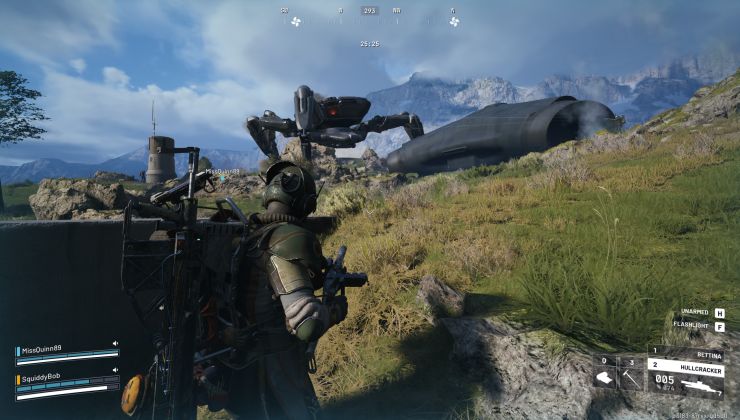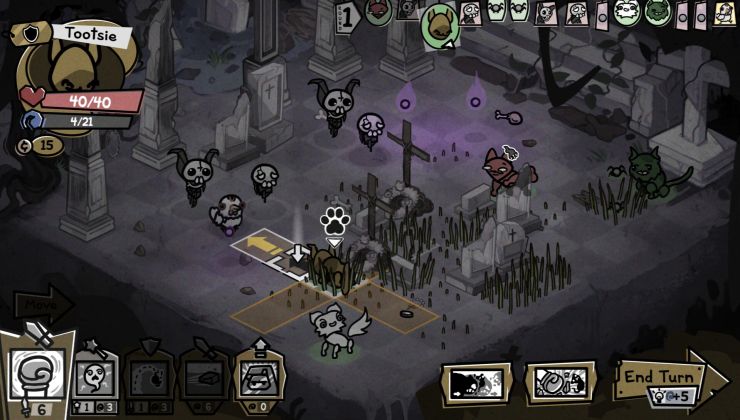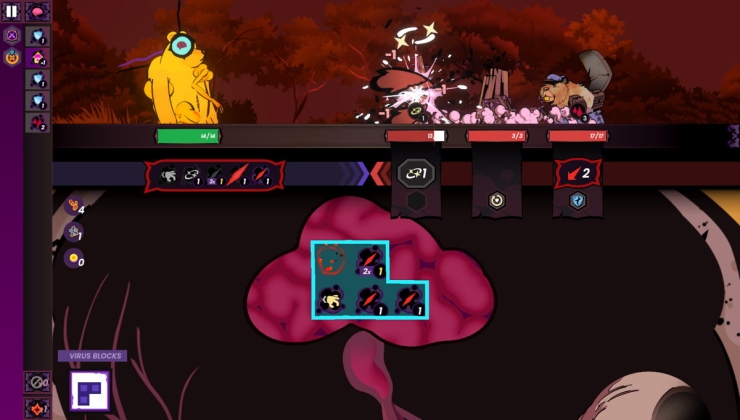After the issues that happened with Linus from Linus Tech Tips breaking Pop!_OS during the switch to Linux challenge, the APT package manager has been upgraded to prevent future issues happening.
We covered the problem in our previous article, where System76 were going to apply their own fix to prevent a dialogue appearing that allowed users to end up removing essential packages. At the same time, System76 were also talking with the APT team to get an official fix and one has now been created and released with APT 2.3.12.
The issue shouldn't have come up often, and was the result of the Steam package breaking, with APT in terminal mentioning lots of different things that could easily confuse users. To continue you needed to enter "Yes, do as I say!" to progress, which you should probably never do since the warning was there for a reason - essential packages being removed.

Picture Source: YouTube - oh dear.
Now, that option has been removed and APT will no longer have its solver attempt to remove essential or protected packages, so any dependency problem needs to be resolved manually. As a result your package won't install, remove or upgrade if there's conflicts but at least you have an actual working system. It can be overridden still but it won't tell you explicitly how to do so in the error messaging to prevent people just doing it anyway again.
Looks like Pop!_OS is already readying to bring in the changes. It's likely other distributions using APT will follow during their regular update patterns.
Quoting: slaapliedjeOh right... That way around: On Windows most people do everything with an Admin account. Well that's stupid..Quoting: NeverthelessYou absolutely still have to have superuser rights to install Windows / Mac software too. Flatpak / Appimage / Snaps are different in this regard. While there are methods in Windows and Mac that software distributors can use to not require admin access, most of them don't bother. You still have a prompt that requires admin access to get past.Quoting: RoosterIn my opinion the ridiculous part here is that you need to have superuser rights to install a simple application.Quoting: NeverthelessI say there are 2 issues here:Quoting: slaapliedjeSince Linux distros wait for more users coming over from the Windows realm, package managers should expect users coming that have been trained to ignore most of the text that is beeing thrown at them during installation of software. For them it is almost unthinkable that the installation of a gaming software could uninstall parts of their OS.Quoting: AussieEeveeThat 'wall of text' ends with "you are about to remove essential packages, type exactly, 'Yes, I know what I'm doing' to continue."Quoting: ObsidianBlkThose neon warning signs are there,I think part of the problem was that there was no neon warning signs. The only warnings Linus got was an error from popshop that wasn't clear on what was happening... and a giant wall of text from apt.
Which is more than enough to say 'stop, you're about to do something horrendous to your system.' I have made many jokes before about not being able to do flashing red text in Confluence because of people not following the wiki... But really there are two things to blame here. 1) Linus being smart enough to be dangerous. 2) Linus not being patient enough to read the warning.
So I think it's an improvement that such users now actively have to search for the command that can do harm, instead of being able to use it by just ignoring something.
I would love the error message being clickable (depending on the kind of error of course), linking the user to a site where he/she can read about and report problems and solutions with the package that led to the error.
The first one 100% apt/Pop OS fault and that is that this should NEVER have happened during simple package installation, even if done from terminal.
But.. as anyone who worked with computers for a long time knows.. One of those things that should NEVER happen will eventually happen. Doesn't matter if you are on Linux, Mac or Windows. Which brings me to the second issue.
The second issue is 50% user fault and 50% Windows fault for training its users to be dumb and not read Warnings (yes even if it's a simple installation of package, user should be expected to read Warnings and Errors).
So instead of package managers having to expect that their users will not read Warnings (which imo is ridiculous), I would say that the distros aimed at new users like Mint and Pop should include a message when running the Terminal (with the option to disable the message for future) that the Terminal is a high level tool and the user is expected to read and understand potential Warnings.
There are people out there, who are something in between new users and geeks. They are people that want to use computers in a secure, private way. They don't want to mess with their OS more than nessessary. Most of them are now on Windows or Mac and not on Linux, for a reason..
I think distros like Mint and Pop are not primarily aimed at new users, but at those people, new users or not. And since Mint and Pop (and ...) don't stand in the way of more advanced users, they're good for those too.
So the question is: Do they find a way to welcome the users they're aimed at, without giving up certain principles?
I don't know why it's ridiculous to expect people to know how to read... If you start up the terminal with 'OMG don't touch this unless you know what you're doing!!' do you think anyone would ever attempt to try playing with the terminal and learning something?
And no I never said "it's ridiculous to expect people to know how to read". I said they're trained to ignore. And maybe because they're not nuking the system all the time...
Thats why I think it's a good idea to make it impossible to destroy your system without having to read (or know).
Quoting: NeverthelessPeople have been trained to hit next or allow or scroll down to do the same. On the other hand, no one has been trained to type 'Yes, do as I say' Linus should have paused for a moment to look at 'Why is this asking me a full sentence?'Quoting: slaapliedjeOh right... That way around: On Windows most people do everything with an Admin account. Well that's stupid..Quoting: NeverthelessYou absolutely still have to have superuser rights to install Windows / Mac software too. Flatpak / Appimage / Snaps are different in this regard. While there are methods in Windows and Mac that software distributors can use to not require admin access, most of them don't bother. You still have a prompt that requires admin access to get past.Quoting: RoosterIn my opinion the ridiculous part here is that you need to have superuser rights to install a simple application.Quoting: NeverthelessI say there are 2 issues here:Quoting: slaapliedjeSince Linux distros wait for more users coming over from the Windows realm, package managers should expect users coming that have been trained to ignore most of the text that is beeing thrown at them during installation of software. For them it is almost unthinkable that the installation of a gaming software could uninstall parts of their OS.Quoting: AussieEeveeThat 'wall of text' ends with "you are about to remove essential packages, type exactly, 'Yes, I know what I'm doing' to continue."Quoting: ObsidianBlkThose neon warning signs are there,I think part of the problem was that there was no neon warning signs. The only warnings Linus got was an error from popshop that wasn't clear on what was happening... and a giant wall of text from apt.
Which is more than enough to say 'stop, you're about to do something horrendous to your system.' I have made many jokes before about not being able to do flashing red text in Confluence because of people not following the wiki... But really there are two things to blame here. 1) Linus being smart enough to be dangerous. 2) Linus not being patient enough to read the warning.
So I think it's an improvement that such users now actively have to search for the command that can do harm, instead of being able to use it by just ignoring something.
I would love the error message being clickable (depending on the kind of error of course), linking the user to a site where he/she can read about and report problems and solutions with the package that led to the error.
The first one 100% apt/Pop OS fault and that is that this should NEVER have happened during simple package installation, even if done from terminal.
But.. as anyone who worked with computers for a long time knows.. One of those things that should NEVER happen will eventually happen. Doesn't matter if you are on Linux, Mac or Windows. Which brings me to the second issue.
The second issue is 50% user fault and 50% Windows fault for training its users to be dumb and not read Warnings (yes even if it's a simple installation of package, user should be expected to read Warnings and Errors).
So instead of package managers having to expect that their users will not read Warnings (which imo is ridiculous), I would say that the distros aimed at new users like Mint and Pop should include a message when running the Terminal (with the option to disable the message for future) that the Terminal is a high level tool and the user is expected to read and understand potential Warnings.
There are people out there, who are something in between new users and geeks. They are people that want to use computers in a secure, private way. They don't want to mess with their OS more than nessessary. Most of them are now on Windows or Mac and not on Linux, for a reason..
I think distros like Mint and Pop are not primarily aimed at new users, but at those people, new users or not. And since Mint and Pop (and ...) don't stand in the way of more advanced users, they're good for those too.
So the question is: Do they find a way to welcome the users they're aimed at, without giving up certain principles?
I don't know why it's ridiculous to expect people to know how to read... If you start up the terminal with 'OMG don't touch this unless you know what you're doing!!' do you think anyone would ever attempt to try playing with the terminal and learning something?
And no I never said "it's ridiculous to expect people to know how to read". I said they're trained to ignore. And maybe because they're not nuking the system all the time...
Thats why I think it's a good idea to make it impossible to destroy your system without having to read (or know).
Quoting: slaapliedjeYes, you're right. I don't dispute that. I just think it would be a good idea to make app installation as easy as possible, and system destruction as intentional as possible.Quoting: NeverthelessPeople have been trained to hit next or allow or scroll down to do the same. On the other hand, no one has been trained to type 'Yes, do as I say' Linus should have paused for a moment to look at 'Why is this asking me a full sentence?'Quoting: slaapliedjeOh right... That way around: On Windows most people do everything with an Admin account. Well that's stupid..Quoting: NeverthelessYou absolutely still have to have superuser rights to install Windows / Mac software too. Flatpak / Appimage / Snaps are different in this regard. While there are methods in Windows and Mac that software distributors can use to not require admin access, most of them don't bother. You still have a prompt that requires admin access to get past.Quoting: RoosterIn my opinion the ridiculous part here is that you need to have superuser rights to install a simple application.Quoting: NeverthelessI say there are 2 issues here:Quoting: slaapliedjeSince Linux distros wait for more users coming over from the Windows realm, package managers should expect users coming that have been trained to ignore most of the text that is beeing thrown at them during installation of software. For them it is almost unthinkable that the installation of a gaming software could uninstall parts of their OS.Quoting: AussieEeveeThat 'wall of text' ends with "you are about to remove essential packages, type exactly, 'Yes, I know what I'm doing' to continue."Quoting: ObsidianBlkThose neon warning signs are there,I think part of the problem was that there was no neon warning signs. The only warnings Linus got was an error from popshop that wasn't clear on what was happening... and a giant wall of text from apt.
Which is more than enough to say 'stop, you're about to do something horrendous to your system.' I have made many jokes before about not being able to do flashing red text in Confluence because of people not following the wiki... But really there are two things to blame here. 1) Linus being smart enough to be dangerous. 2) Linus not being patient enough to read the warning.
So I think it's an improvement that such users now actively have to search for the command that can do harm, instead of being able to use it by just ignoring something.
I would love the error message being clickable (depending on the kind of error of course), linking the user to a site where he/she can read about and report problems and solutions with the package that led to the error.
The first one 100% apt/Pop OS fault and that is that this should NEVER have happened during simple package installation, even if done from terminal.
But.. as anyone who worked with computers for a long time knows.. One of those things that should NEVER happen will eventually happen. Doesn't matter if you are on Linux, Mac or Windows. Which brings me to the second issue.
The second issue is 50% user fault and 50% Windows fault for training its users to be dumb and not read Warnings (yes even if it's a simple installation of package, user should be expected to read Warnings and Errors).
So instead of package managers having to expect that their users will not read Warnings (which imo is ridiculous), I would say that the distros aimed at new users like Mint and Pop should include a message when running the Terminal (with the option to disable the message for future) that the Terminal is a high level tool and the user is expected to read and understand potential Warnings.
There are people out there, who are something in between new users and geeks. They are people that want to use computers in a secure, private way. They don't want to mess with their OS more than nessessary. Most of them are now on Windows or Mac and not on Linux, for a reason..
I think distros like Mint and Pop are not primarily aimed at new users, but at those people, new users or not. And since Mint and Pop (and ...) don't stand in the way of more advanced users, they're good for those too.
So the question is: Do they find a way to welcome the users they're aimed at, without giving up certain principles?
I don't know why it's ridiculous to expect people to know how to read... If you start up the terminal with 'OMG don't touch this unless you know what you're doing!!' do you think anyone would ever attempt to try playing with the terminal and learning something?
And no I never said "it's ridiculous to expect people to know how to read". I said they're trained to ignore. And maybe because they're not nuking the system all the time...
Thats why I think it's a good idea to make it impossible to destroy your system without having to read (or know).
*also, Linus [acknowledges](https://youtu.be/0506yDSgU7M?t=833) his responsibility.
Can you imagine being new to Linux, trying to install a game launcher, seeing a warning like that during the process? "Yeah forking right—wait, what!?" Growing pains.
(My mother is an odd hybrid computers-wise; on one hand, she often has trouble dealing with modern computers and their interfaces, ordering stuff online and so on. On the other hand, back in the day she did programs with punch cards in fucking Fortran)
Quoting: Purple Library GuyA sidelight I found amusing: I gave a basic description of the whole Linus situation to my mother, and she observed that she would find it very tempting to be able to tell the computer "Do what I say!" :grin:They should have just quoted Aliens in apt.
(My mother is an odd hybrid computers-wise; on one hand, she often has trouble dealing with modern computers and their interfaces, ordering stuff online and so on. On the other hand, back in the day she did programs with punch cards in fucking Fortran)
"You are about to nuke your GUI from orbit. Type, 'Hicks, please nuke from orbit.'"
Quoting: ObsidianBlkIn all likelyhood his mistake was following instructions that skipped 'apt update' (he was even using apt-get which I have not used in years). But to bring his system backQuoting: slaapliedjeWould it have even been broken for what he was intending to do? It's been a loooong while since I even had to look, but wouldn't he have had XOrg back with a simple...Quoting: AussieEeveeApt is not a babysitter. It didn't even break his system. It was still working, it was just working in 'I have no Xorg anymore' mode. Which is a perfectly legitimate method of using Linux. :) It just was broken for what he was intending to do. It gave him ample warning that it was removing a bunch of crap. It's on the user to decide whether or not they want to remove all of that. He didn't even spend a second looking at it and just typed the 'yes, do as I say'. Also, has he seriously no clue that he shouldn't just copy / paste commands from random sites? That should be a known thing even for Windows users...Quoting: slaapliedje2) Linus not being patient enough to read the warning.Most newbie users aren't that patient, especially when it comes to walls of text.
The point is that apt should not have allowed him to break his system in the first place. That should not have happened, and the fault is 10% on that Steam package... and 90% on apt.
apt install xorg
That said... at the time, there still would have been Pop_OS!'s bug with the Steam package, so Linus still wouldn't have been able to get Steam (easily).
sudo apt install pop-sessionLikely would have been all he needed.
I don't know if Linus was playing a role, I feel like he was yoloing it, trying to fix his issue in whatever way possible perhaps trying to see how easy it would be for him to break something, which is wrong if it was done solely for views and clicks since it has brought some bad PR to Linux in general.
However, he has acted just like a random noob would have, and that's what I feel is important. A Windows user with close to no experience with Linux but with some computer experience, the kind of noob who is most likely to try to switch to Linux, would probably feel confident enough to follow a tutorial from the internet and to if not ignore warnings, then to just assume that they're to be expected but that the tutorial is right.
I don't know whether the update that APT did is good or not, but what should certainly be done is for the warning to be changed a little. Maybe emphasize the fact that you're removing essential packages instead of that "potentially harmful". I really disagree with the wording here. Alternatively or concurrently, the line about removing essential packages could be emphasized a little, maybe bolded. There aren't that many lines, that is true, but I don't think that a noob following a tutorial will read all the lines to begin with. Their expectation is that they'll copy paste some commands from the internet and that will fix their issues.
Now, it's true that in the long term, there should be an effort to at least vaguely familiarize new users with the terminal, and to teach them that simply following tutorials from the internet without knowing what you'll doing and ignoring warnings is a bad thing, but that will take some effort. The first because if you're a noob and you don't know what you're doing, then a tutorial will look like the Holy Grail - and there aren't that many ways for noobs to check whether a tutorial truly applies to their situation or not. And for the second because that's what Windows has been training people to do for decades - click next, next, and I agree.
Quoting: Purple Library GuyOh, come on. We know about this particular happening because it was a famous youtuber doing a live test session. Who knows how many trees fell in the forest but nobody was making a video of them?If you're right, this would be a testament to people's double standards. If this happens to someone unknown then the answer is "next time you should read the warnings". When it happens to someone famous: "Oh, PopOS has a bug". Add to this that System76 seems to be building a reputation of blaming others for their faults, and then you have "Oops, APT has a bug". In this case they couldn't blame a famous youtuber that could make them look like shit in front of many potential users if he wanted.
But it was also a somewhat freak occurrence--the package failed in such a way that doing a perfectly normal command was going to cause this (if you were somewhat overconfident in your approach). That is not normal, but non-normal things happen and this one did. The package really was that way, this was acknowledged. What do you figure, Linus bribed the packagers or the Pop!OS people to screw up the package so it would cause that error?
Quoting: slaapliedje(he was even using apt-get which I have not used in years).I'm going to be perfectly honest... I really wasn't aware that apt is an actual replacement for apt-get. I'd though it was just an alias being used. I haven't been using Debian-based distros as my daily driver for a few years.
Quoting: berarmaYeah, this was specifically a bug in PopOS' Steam package. Apt didn't have a bug. It acted exactly how it should have given the circumstances of a conflicting package and the user telling it to go ahead and do 'potentially harmful' things to their system.Quoting: Purple Library GuyOh, come on. We know about this particular happening because it was a famous youtuber doing a live test session. Who knows how many trees fell in the forest but nobody was making a video of them?If you're right, this would be a testament to people's double standards. If this happens to someone unknown then the answer is "next time you should read the warnings". When it happens to someone famous: "Oh, PopOS has a bug". Add to this that System76 seems to be building a reputation of blaming others for their faults, and then you have "Oops, APT has a bug". In this case they couldn't blame a famous youtuber that could make them look like shit in front of many potential users if he wanted.
But it was also a somewhat freak occurrence--the package failed in such a way that doing a perfectly normal command was going to cause this (if you were somewhat overconfident in your approach). That is not normal, but non-normal things happen and this one did. The package really was that way, this was acknowledged. What do you figure, Linus bribed the packagers or the Pop!OS people to screw up the package so it would cause that error?
The 'wall of text' was all of the packages being added and removed. That many changes and the warning should have prompted the user to READ what was about to happen. But as Linus likes to drop things, he dropped the ball and typed in the magic words to do harm to his system.
Quoting: AshenPaladinI don't know if Linus was playing a roleGiven that in the second video in the series out today he admitted to blindly trying to use apt on his new Manjaro system without realizing it uses pacman instead, I'm going to go with "not playing a role". :grin:
Quoting: PhiladelphusYeah, that cracked me up. I also watched a reaction video where he tried what Linus did, as he said somehow the ap-get line kept repeating... he couldn't get it to do that.Quoting: AshenPaladinI don't know if Linus was playing a roleGiven that in the second video in the series out today he admitted to blindly trying to use apt on his new Manjaro system without realizing it uses pacman instead, I'm going to go with "not playing a role". :grin:
I have been curious about wikis still using apt-get instead of apt. I know some were not liking that it simply wasn't 'apt install' like you have 'yum install' as 'apt-get $packagename' made more sense to them than 'apt-get install $packagename' and they hated Debian for that... but I keep telling them that was when people recommended 'aptitude install'. Apt as a simple command has been around a long time, I believe apt-get sticks around only for legacy wikis...








 How to setup OpenMW for modern Morrowind on Linux / SteamOS and Steam Deck
How to setup OpenMW for modern Morrowind on Linux / SteamOS and Steam Deck How to install Hollow Knight: Silksong mods on Linux, SteamOS and Steam Deck
How to install Hollow Knight: Silksong mods on Linux, SteamOS and Steam Deck